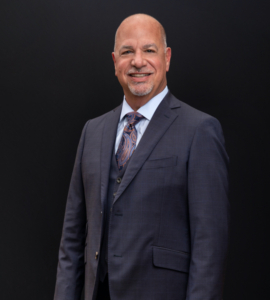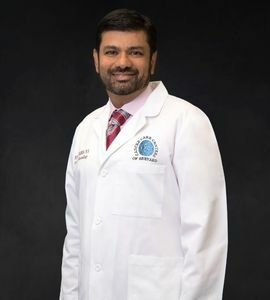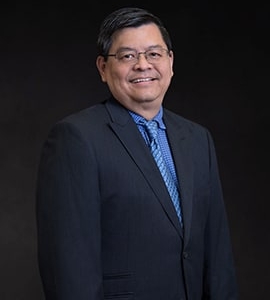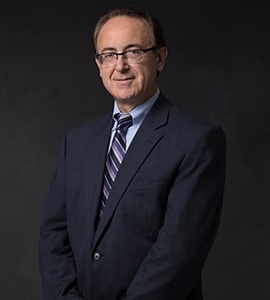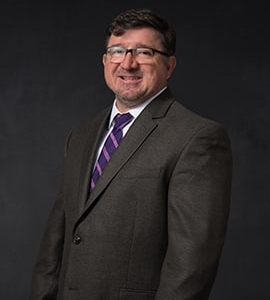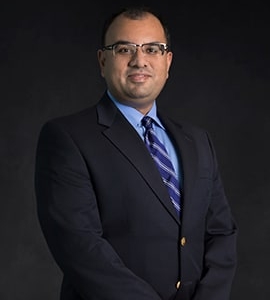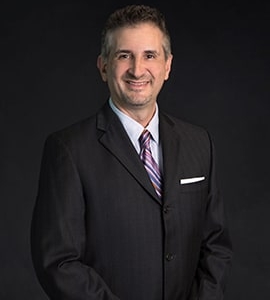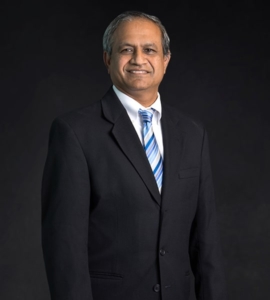Newly Diagnosed with Skin Cancer
Were You Recently Diagnosed with Skin Cancer and Need to See an Oncologist? Here’s What to Expect Next
There are many types of skin cancer, as well as many different treatments. Sometimes, it’s a quick and easy removal with no further action! Other times, the cancer has grown deeper into the skin, requiring additional treatments. Let’s look at who treats skin cancer and what to expect if you receive a skin cancer diagnosis.
What Kind of Doctor Treats Skin Cancer?
Patients commonly receive a skin cancer diagnosis from their dermatologist. When the cancer is small, the dermatologist can often remove it along with some surrounding skin during an office visit. However, if the dermatologist suspects that the skin cancer has spread, grown deep into the layers of skin, or is difficult to reach, additional treatments may be needed. An oncologist will lead the next steps in skin cancer treatment.
A medical oncologist can be the leader of a skin cancer treatment plan. They will discuss details about your diagnosis, such as the type of skin cancer, the stage, and how it can be treated to ensure all the cancer cells are removed. Other care team members typically include the dermatologist, a plastic surgeon if needed, and a radiation oncologist if radiation therapy is part of the treatment plan. This team will work together to recommend the best treatment plan for you.
Should You Get a Second Opinion about a Skin Cancer Diagnosis?
After receiving a treatment plan from your dermatologist or an oncologist, feel free to seek a second opinion. By talking with another doctor, you can compare potential treatment paths. Most skin cancer patients have time to consider their next steps and choose the team that makes them feel most comfortable. Most insurance companies will cover the cost of a second opinion for cancer treatment. We encourage patients to take advantage of this resource when possible.
The oncologists at Cancer Care Centers of Brevard (CCCB) frequently provide second opinions for patients. If you have received a skin cancer diagnosis and are currently seeking a second opinion, contact CCCB to schedule your appointment so you can feel confident about receiving the best possible care.
How Does My Skin Cancer Type and Stage Affect Treatment?
There are several types of skin cancer, meaning the treatment will vary. Your skin cancer doctor will provide more information about your specific type and how that influences the recommended treatment plan.
Learn more about the different types of skin cancer.
If a biopsy is performed on tissue removed during surgery, the pathology report will play an important part in the staging process. The oncologist may need to run additional tests before finalizing the stage and treatment recommendations. A lymph node biopsy, images, and blood tests may also be required.
Stages are represented by Roman numerals I through IV, with higher numbers indicating advanced cancer with further spread. Knowing the stage of skin cancer helps your oncologist understand the extent of how far it has grown and which treatments will be best for you.
Learn more about skin cancer staging.
Preparing for an Appointment with a Skin Cancer Oncologist
During your appointment with the oncologist, you will receive a lot of information. It is a good idea to bring someone who can listen with you. Consider starting a notebook to take notes, write down questions, and even keep track of your medications.
If another note-taking method works better, commit to sticking with it. One option is to bring in a laptop or use your phone's notes feature. It is best to stay consistent with whichever method you choose.
Questions to Ask During Your First Appointment
To help better understand your type of skin cancer and what to expect as part of treatment, here are questions to ask your cancer care team after you receive a skin cancer diagnosis.
Is additional surgery needed at the skin cancer site? What about other surgery, such as a lymph node biopsy? If not, will I need to consider other treatment options?
Will I need a plastic surgeon?
What kind of side effects can I expect from the treatment I will receive?
Do you have any recommendations for eating, exercising, or other activities that I should consider?
What can I expect during my appointments?
Am I a candidate for a clinical trial?
How can I protect my skin from the sun to avoid more skin cancer development?
How Fast Should I Make Decisions Regarding My Treatment?
While you don’t want to wait too long, especially if the skin cancer is in a later stage, most patients have time for a second opinion. The sooner you are treated, the higher the chance of a successful outcome.
Clinical Trials for Treating Skin Cancers
Cancer Care Centers of Brevard offers some of the most recent breakthroughs in cancer treatment to eligible cancer patients in Brevard County. Clinical trial research aims to improve current treatments or gather new information about new skin cancer treatments that could replace the standard treatment. If you are eligible for a skin cancer clinical trial, a member of our team will talk with you about it.
Learn more about clinical trials available at Cancer Care Centers of Brevard.
Will Insurance Cover My Cancer Treatment?
You’re likely concerned about the financial impact that skin cancer treatment will have.
If you have insurance, at least some of your skin cancer treatment should be covered by your policy. Every policy is different, and every patient's recommended course of treatment will be unique. Cancer Care Centers of Brevard is a participating provider for most insurance companies. A CCCB financial counselor will talk with you after your first appointment to discuss your coverage and how to make payments if needed.
Find Skin Cancer Doctors Using the Latest Treatment Options in Brevard County
The skin cancer specialists at the Cancer Care Centers of Brevard will help you through every step of this journey.
We care about your overall well-being and ensure that your care is tailored to your unique needs. In addition to the different diagnostic tests and treatment options, we can assist you with other support services such as financial counseling, insurance, access to relevant clinical trials, educational resources, etc. Request an appointment for a consultation near you in Brevard County.
